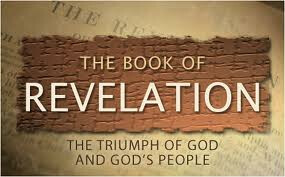Tackling A Loss: How do cope with loss of a loved one.
Tackling a Loss: How to cope with the aftermath of losing a loved one.

(Photo via Pixabay by Sasint)
Losing a loved one can have a profound effect on an individual, from the physical to the emotional. It can wring us out and leave us feeling like a shell of our former selves, bringing with it a loss of sleep, feelings of anxiety and depression, and/or grief that lasts for months or even years. When you’re faced with a loss, it’s important to manage your grief in a way that’s healthy, because there are many difficult things that can come afterward. For instance, you may need to clean out your loved one’s house or plan a memorial service, and these tasks can be very emotionally taxing.
Fortunately, there are several ways you can get through this difficult time without sacrificing your mental health. There are professional grief counseling services that can help you along the way, or you can look for support from your friends and loved ones. You can also find healthy ways to cope with your loss, such as remembering them in a positive way by putting together a scrapbook of their life and accomplishments.
Keep reading for some helpful tips on how to handle losing a loved one and how to cope with the aftermath.
Get organized
Death can come at us swiftly; even when a loved one is ill for some time before they pass, the loss of them can make you feel like the floor has dropped from under you. When this happens, it’s easy to become overwhelmed and scattered, especially if you’re the one making preparations for their final wishes and services. Getting organized can help you feel more in control. You might start by making a list of the tasks you want to complete and speaking with family members who might be able to help. Assigning jobs will help take some of the weight off your shoulders and will allow you to focus on remembering your loved one in the way you want.
Ask for help
When faced with tasks such as cleaning out your loved one’s home or going through their belongings to decide what to keep, what to donate, and what to give to family members, you might feel your grief bubble up and make it difficult to concentrate. Consider seeking assistance from an online bereavement program that will help you manage your grief while you take care of the important tasks on your list.
When it comes to deciding what goes and what stays, be sure to get some feedback from family members and take into consideration what your loved one wanted, especially if they left a will behind. Things that might have sentimental value--such as jewelry, photos, and certain items of clothing--should be put aside, while practical items such as kitchen appliances can probably be donated.
Practice self-care
Self-care can involve any number of things, from getting daily exercise to making sure you get good rest. Many people who are going through the grieving process find that it’s hard to sleep well, especially in the first few months, so it’s important to do everything you can to relax at night. Invest in comfortable bedding, get daily exercise, make sure your diet doesn’t contain an excess of sugar or caffeine, and consider journaling as a way to release emotions that can keep you up at night.
Facing the loss of a loved one--and everything that comes after--can be overwhelming in many ways. Don’t be afraid to reach out and ask for help from friends, loved ones, and other support systems, especially if you’re finding it hard to get through daily tasks. With a little assistance and some time, you will get through this difficult loss.

